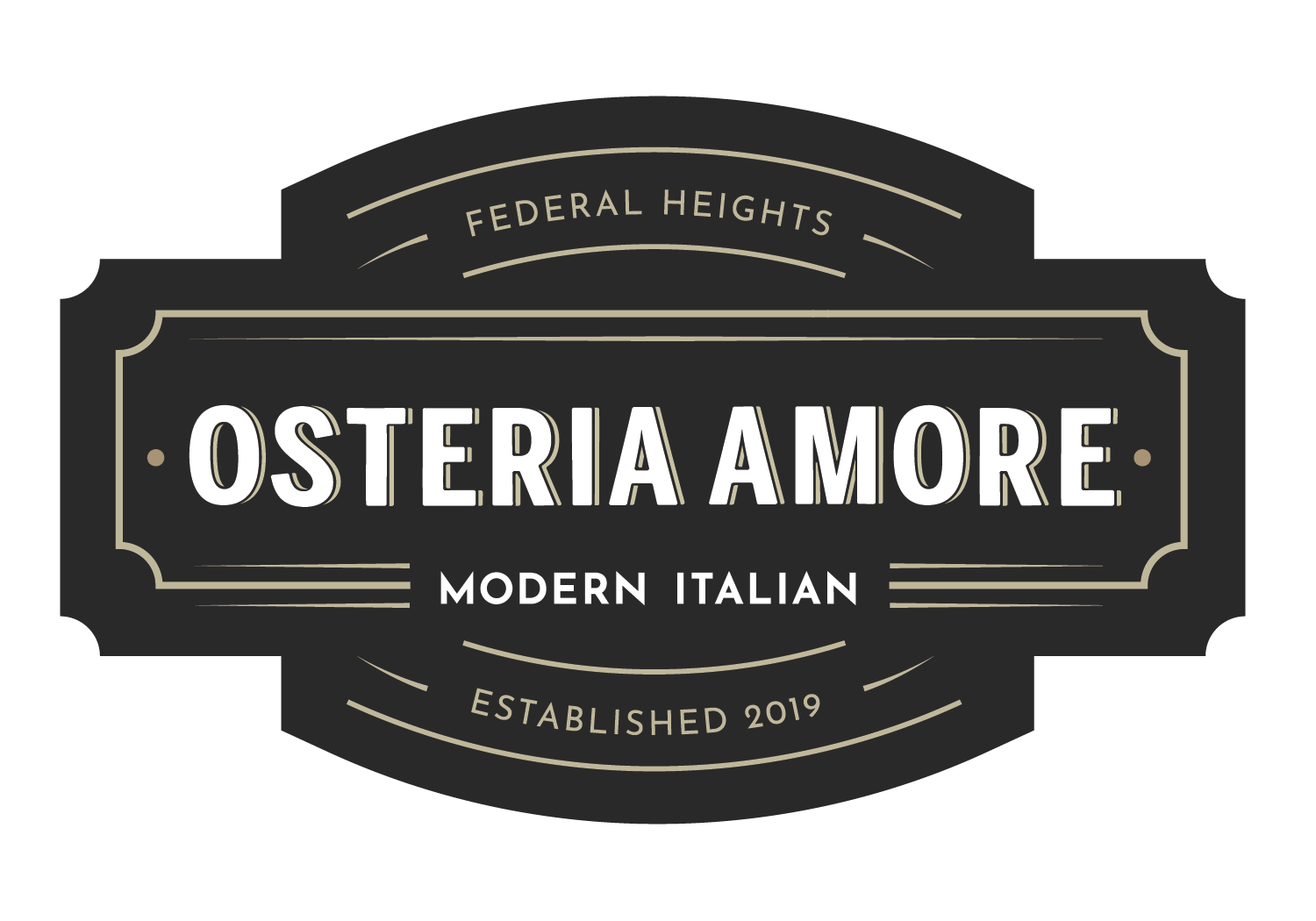Ready to Move on From Olive Garden? A Quick Guide to Authentic Italian Cuisine
Food is a necessity for survival, but it’s also evolved into something far more for modern humans. Eating can be an act of comfort, camaraderie, or even curiosity. Where and how we eat says a lot about who we are and what we value.
Osteria Amore’s executive chef, Marco Cuttaia.
Is Olive Garden even real Italian food?
For many Italians, food isn’t just food; it’s culture, legacy, a way to express love and respect to others, a means of speaking without words. Authentic Italian cuisine reflects these values in every dish, from the thought that goes into choosing ingredients, to the preparation time to bring many complex flavors together seamlessly while honoring each singly, to the manner in which the food is served to maximize the dining experience (including time spent in the company of loved ones).
There’s a reason Italian food is so popular in America--it’s delicious, hearty, and inherently shareable. However, there’s a lot of authenticity that’s gotten lost in translation as Italian food, with centuries of tradition behind its recipes, has been adapted to American palates and eating habits.
This means the food you’ve had at your favorite Italian restaurant (say, Olive Garden) probably isn’t that, well...Italian. It’s an entirely different species of food called Italian-American, and it likely looks and tastes somewhat different from a meal you’d get in Italy. And while there’s definitely a place for Italian-American food, at Osteria Amore, we’re passionate about giving our guests a real taste of Italy, without the culture shock.
Ordering authentic Italian, for beginners.
With all that said, we’d like to give you a crash course on enjoying authentic Italian cuisine, even if all you’ve only ever been exposed to Italian-American food. Whether you’re trying something entirely new, are wanting to try a more authentic preparation of a dish you’ve had and loved, or are simply looking to gain a better understanding of what truly makes Italian food so freaking good, you’re in the right place.
To make things simple, we’re going to break down how to order authentic Italian cuisine at Osteria Amore (or any Italian restaurant, really) using a reference point most people will understand: Olive Garden’s menu! If you’ve eaten at Olive Garden or a similar Italian-American restaurant, chances are you have favorites or at least know what you like. Using our table below, find your favorite Olive Garden dish and see how it compares to a similar authentic Italian recipe.
| If you usually order: | Then consider trying: |
|---|---|
| Zuppa Toscana | Zuppa di Mare: Mixed fresh seafood served in delicate wine tomato sauce |
| Famous House Salad | Cesare: Romaine lettuce, crotons, caesar dressing, anchovies, grana flakes |
| Spinach Artichoke Dip | Carciofini Fritti: Deep-fried artichokes, shishito pepper, aioli lemon |
| Calamari | Coppo di Mare: Crispy fried calamari, smelt fish, shrimp, dipping sauce |
| Lasagna Fritta | Arancine Siciliane: Deep fried rice balls with bolognese sauce, mozzarella |
| Tour of Italy | Tagliatelle Bolognese: Tagliatelle pasta, ragú bolognese |
| Chicken Parmesan | Parmigianna: Grilled eggplant, tomato sauce, mozzarella, aged parmigiano reggiano |
| Chicken Carbonara | Carbonara: Rigatoni pasta, guanciale, egg yolks, pecorino romano |
| Chicken Alfredo | Osteria Amore: Casarecce pasta, bacon, pistachio, cream, burrata cheese |
| Shrimp Alfredo/Shrimp Scampi | Sapori di Mare: Spaghetti, clams, mussels, shrimp, cherry tomatoes, light white wine tomato sauce |
| Fettuccine Alfredo | Osteria Amore: Casarecce pasta, bacon, pistachio, cream, burrata cheese |
| Cheese Ravioli | Cestini di Casa: Cestini ravioli, pear, gorgonzola, butter, sage |
| Salmon Piccata | Trancio di Salmone: Grilled salmon covered with a light cream of dried tomatoes, paprika, red chili pepper, garlic, and basil |
| Sirloin with Fettuccine Alfredo | Filet Mignon: Filet, asparagus, mashed potatoes, aromatized butter, roasted fennel |
| Any dessert | Gelato (trust us, try the gelato. Pistachio is a guest favorite) |
Other tips for an exceptional dining experience.
Try to go into your next experience with authentic Italian cuisine with an open mind. It won’t taste exactly like what you’re used to, but you might actually enjoy the variation from your usual.
Remember that Italian eating customs are very different from American ones, and these differences will be apparent at most authentic Italian restaurants. For example, there’s a good chance you won’t be able to find a dish that combines an entree-size serving of meat with pasta. In fact, the meat and pasta are entirely separate courses in Italy. At most, you’ll find pasta made with seafood or that a small portion of meat distributed in the sauce.
Consider not ordering flavored sodas with your meal. The flavors of authentic Italian cuisine are meant to combine precisely on your tongue, and sugary drinks will alter the taste of your food. If you drink alcohol, try the wine suggested by the chef to complement your chosen meal. If not, stick to water—your food will taste how it’s supposed to, and you’ll save money!
The bread will be nothing like the breadsticks at Olive Garden, but you’ll still love it!
Pasta will not be smothered in a pile of sauce, but combined fully with its sauce before it’s served to you.
Polpo alla Griglia: Grilled octopus, potato cream, sweet cherry tomatoes.
Osteria Amore’s Marco Cuttaia preparing Polpo alla Griglia
If at first you don’t succeed…
Remember that learning to like something new isn’t always a one-and-done type of venture. If you’re not bowled over by the first thing you try at a new authentic Italian restaurant, try again—but this time, ask for recommendations from your server, or order something your friend liked when they ate there. Chances are, you just need to find what you like. Most of all, enjoy yourself, and the company you’re with—that’s what Italian food is really about, after all!



